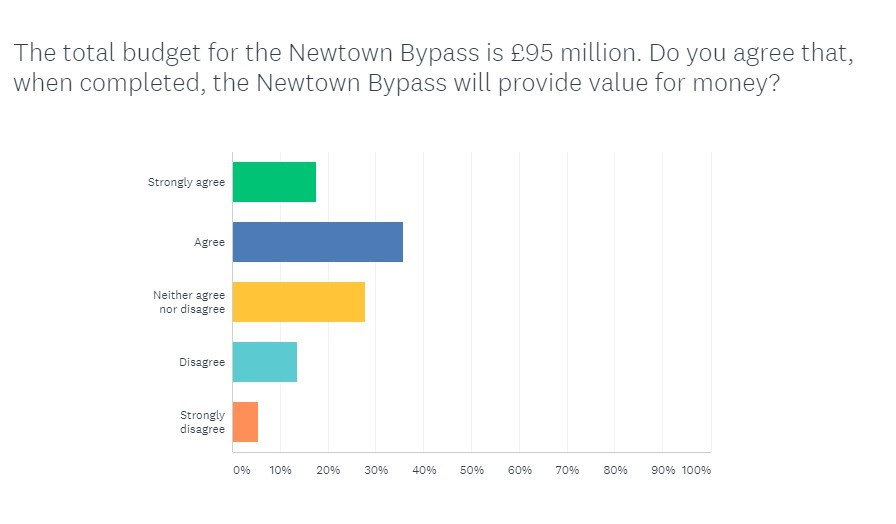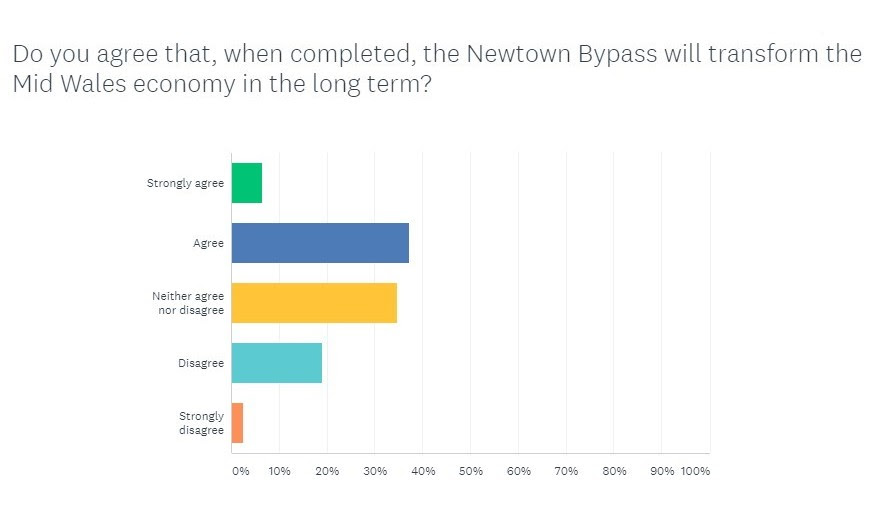It's not a question about being blinkered. It's about recognising that there's overwhelming evidence from the UK and from around the world that investing in road networks to reduce congestion rarely succeeds. The problem is that people always adjust their habits in response to whatever investment you put in. Invest in rail and more people will travel by rail (including some swapping from cars). Invest in buses and more people will travel by bus. Invest in roads and more people will travel by car (including some swapping from bus and train).
You might not think that's a problem, but the issue then is that cars are inherently a very low-capacity form of transport. Do the maths... A single carriage road can take one car every few seconds travelling along it before it's completely full up and traffic jams forming. About 1000 to 1500 cars an hour and you will probably have significant congestion at every junction. With most cars having one single person in them, that's 1000 to 1500 people per hour max. Compare that with trains, where some trains around London can have close to 1000 seats
on one single train! (Obviously in Wales most local trains are a lot shorter so don't have anything like that many seats). Bluntly, in most urban areas, if you rely on improving roads, it's just not possible to accommodate the demand for road space. No matter how many roads you build, demand just grows to fill the capacity, leaving bad congestion and slow, frustrating, journeys. That's why building more roads to try and fix congestion is almost always a bad idea (and usually, a waste of money).
That tends not to be such a problem for rail because of rail's inherently much higher capacity - which means investing in rail usually isn't self-defeating in the way that investing in roads is.
You mention businesses that depend on an efficient road network. The answer to that is to invest in public transport so that fewer people need to drive, so that those businesses that really need to use roads can do so with less congestion. That's not being blinkered: It's recognising what the
ONLY feasible solution to congestion is.
In the case of Carmarthen-Aberystwth (mostly rural but with small urban areas at both ends

), there are good reasons for doubting that a rail-re-opening would be successful or cost-effective. That probably means that if there is a need to improve transport links along that corridor, then investing in buses (perhaps including bus lanes and so on to speed buses up at any congested bits of the journey) is the way to go.
And I haven't even mentioned pollution or accessibility etc., which of course just add to those arguments.



 ), there are good reasons for doubting that a rail-re-opening would be successful or cost-effective. That probably means that if there is a need to improve transport links along that corridor, then investing in buses (perhaps including bus lanes and so on to speed buses up at any congested bits of the journey) is the way to go.
), there are good reasons for doubting that a rail-re-opening would be successful or cost-effective. That probably means that if there is a need to improve transport links along that corridor, then investing in buses (perhaps including bus lanes and so on to speed buses up at any congested bits of the journey) is the way to go.